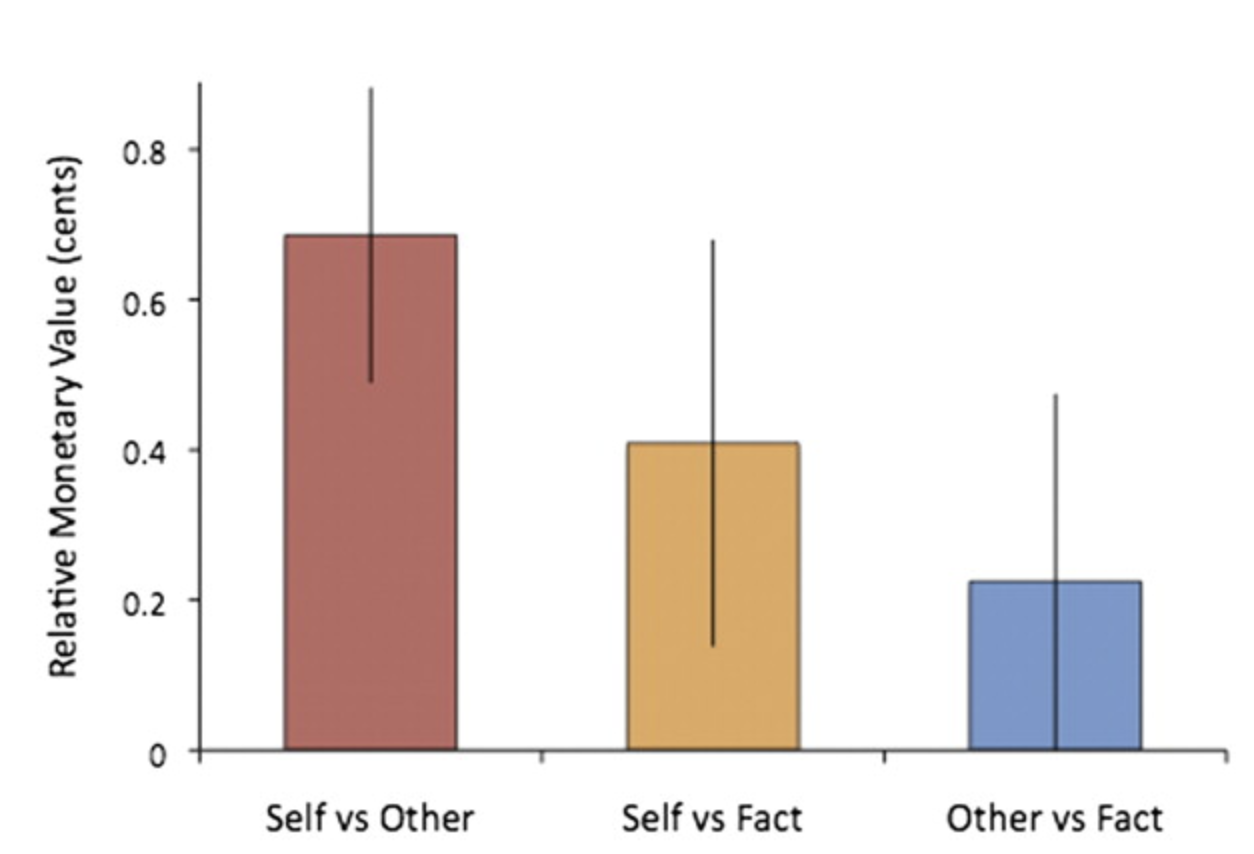Buyers Like Answering THESE Discovery Questions the Most (According to Science)
Running high-impact sales discovery is hard. Of course, going in prepared, listening intently, and even ordering your discovery questions in just the right way can have a massive impact. But choosing the right questions to ask in the first place is critical!
Unfortunately, buyers don’t like answering most of the discovery questions you ask them. Our brains are hardwired to prefer a particular type of conversation.
The Questions We Like Most
In a study conducted at Harvard University, researchers Diana Tamir and Jason Mitchell noted that 30–40% of everyday speech is used to inform others about our own subjective experiences. In fact, by nine months of age, babies are observed attempting to draw others’ attention to elements of their environment they find of particular interest. And regardless of where we might live in the world, most of the time we spend communicating with other people involves sharing our knowledge, perspectives, and opinions with them.
To better understand the human predisposition towards certain types of questions, researchers gave participants the choice to answer questions that involved the disclosure of three types of information:
- Their own beliefs and opinions (e.g. “How much do you enjoy winter sports such as skiing?”)
- Speculations about the beliefs and opinions of another person (e.g., “How much does Barack Obama enjoy winter sports such as skiing?”)
- Facts (e.g., “True or false; Leonardo Da Vinci painted the Mona Lisa.”).
Each question carried with it a monetary payoff that participants would earn at the end of the experiment, and the values were varied across the various trials.
The hypothesis was that if participants were predisposed to wanting to share information about themselves because they find it intrinsically rewarding, they should bias toward those types of questions even though answering other varieties could earn them more money. And that’s precisely what happened!
When payoff amounts were equal between question types, participants chose to answer self-questions 69 and 66% of the time over other questions and fact questions, respectively. In fact, biasing towards self-questions resulted in an average loss of 17% of the participant’s potential earnings. In short, people were willing to sacrifice money to answer questions that involved sharing their own opinions.

Source: PNAS May 22, 2012 109 (21) 8038-8043
Furthermore, using functional magnetic resonance imaging (fMRI) scanning, researchers observed the brainwave patterns of participants while being asked questions that required them to disclose their own opinions or judge the opinions of others. They found that sharing their own opinions produced significantly greater responses in the reward centers of the brain than did judging those of another person.

Source: PNAS May 22, 2012 109 (21) 8038-8043
In other words, when it comes to the science of discovery, people are scientifically and emotionally predisposed to answering questions that require them to state their own views and opinions on a particular topic. Other people’s views and facts simply aren’t as engaging.
The Mistake Most Sellers Make (And Three Simple Words That Can Fix it!)
Unfortunately, despite our best efforts, many sellers unintentionally ask fact-based questions masquerading as opinion-based questions. For example, suppose your customer told you that they’re experiencing a business challenge caused by an old, outdated process they have yet to move away from. As you dive deeper into your discovery conversation, you might be tempted to ask questions like:
- Why are you still using that old process?
- Why is that process so inefficient?
- How much money are you losing by continuing to use that old process?
On the surface, these seem like good, conversational questions, and indeed they are. However, upon closer investigation, you’ll notice the insights they’re driving towards are fact-based. In other words, you’re asking the customer to state factual responses to your questions instead of asking for their opinion.
A very easy tweak you can make to supercharge the intent of your questions is asking the customer explicitly to state their opinion on the problem by injecting the phrase “do you think” into your talk track. For example:
- Why do you think you are still using that old process?
- Why do you think that process is so inefficient?
- How much money do you think you are losing by continuing to use that old process?
With these three words as your ally, there will be no question as to your desire for the customer to poetically share the opinions they so clearly want to!
BONUS VIDEO: Buyers LOVE Answering These Questions The Most!
We promise never to send you junk or share your email! Just helpful sales insights.














Interesting psychology into how we all react to questions David.
Such a subtle but affective tweak in our style of questioning.
Great tips as always!
Keep them coming.
Tom
Thanks Tom! Glad you enjoyed it. If you keep reading them, I’ll keep writing them 🙂
Good stuff, buddy. I will be tweaking some of my questions on my discovery call today!
Awesome Mike! Let me know how it goes!
Great insight and suggestion! Do you think people prefer to answer questions about their opinions because they find it intrinsically rewarding (as hypothesized) or because, unlike questions about facts or about other people, they can’t be (proven) wrong? Are they/we seeking reward or just trying to take the safer path to avoid an emotional ‘loss’?
Good question Aaron. I believe it’s the first one. I don’t believe “opinions” and “safety” are synonymous. After all, my opinion on a particular topic might be highly unpopular, controversial, or even challenged. For example, opinions on politics, masking, vaccines, etc. are not always “safe”. But the main reason I believe it’s the former is because the researcher notes that the same behavior is observed in babies and more primitive animals, for whom the concept of proof and emotional loss is irrelevant.